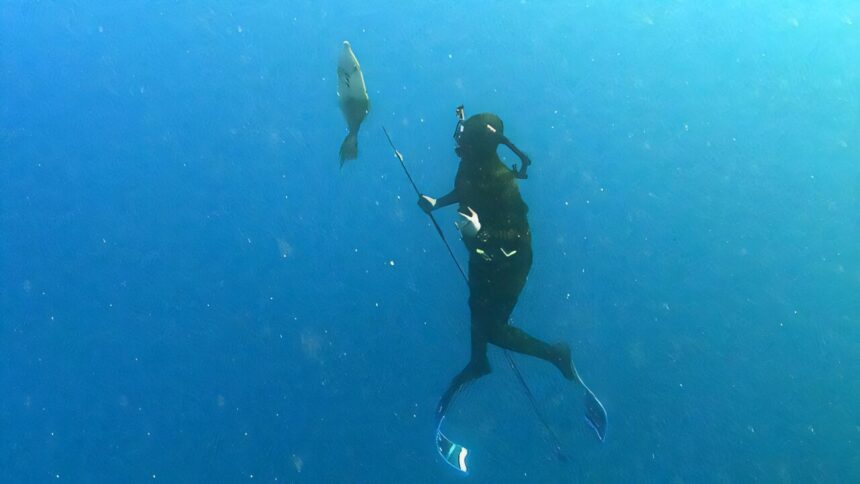Spearfishing, a traditional practice deeply rooted in Hawaiian culture, does more than provide food; it plays an important role in supporting community health. A recent study conducted by the University of Hawaiʻi at Mānoa’s Thompson School of Social Work & Public Health sheds light on the physical and cultural benefits of spearfishing, offering valuable insights into how this activity can promote well-being across the islands.
The study, published in PLOS One, was led by Lauryn Hansen, a 2023 Master of Public Health graduate and current Grau Fellow with Hawaiʻi Sea Grant, along with Catherine Pirkle, a professor in the Department of Public Health Sciences. The researchers delved into how spearfishing contributes to physical activity, cultural identity, food security, and a strong connection to nature and community.
Spearfishing in the Pacific is not just a means of catching fish; it is a living tradition steeped in Indigenous knowledge and community values. Passed down through generations, spearfishing remains a vital link between people, their heritage, and the environment. The study highlights the widespread practice of spearfishing among Indigenous and rural communities in Hawaiʻi, emphasizing the importance of activities that celebrate cultural identity in public health strategies.
Despite its numerous benefits, spearfishing is often excluded from formal health promotion efforts and public health data collection. The researchers hope to inspire more inclusive strategies that integrate traditional practices as effective tools for supporting health and wellness. Data from the 2019 and 2020 Hawaiʻi Behavioral Risk Factor Surveillance System survey revealed that approximately 25% of adults in Hawaiʻi have engaged in spearfishing at some point in their lives, with higher participation rates among men, Native Hawaiians, Pacific Islanders, and rural residents of specific islands.
Spearfishing not only promotes physical activity but also fosters a healthy lifestyle, cardiovascular health, and a strong sense of community. By bridging tradition with modern health strategies, the study sets a precedent for public health programs that are both effective and culturally meaningful to the communities they serve.
The findings of this study were presented at the International Society for Physical Activity and Health Congress in Paris, showcasing how traditional practices like spearfishing can contribute to overall well-being. By recognizing the cultural significance of activities like spearfishing and integrating them into health promotion efforts, communities in Hawaiʻi can reap the benefits of improved health and strengthened cultural connections.
In conclusion, spearfishing in Hawaiʻi is not just a way to catch fish—it is a cultural tradition that strengthens bodies, bonds, and heritage. By acknowledging and supporting activities that celebrate cultural identity, public health strategies can align with the values and practices of the communities they aim to serve.








